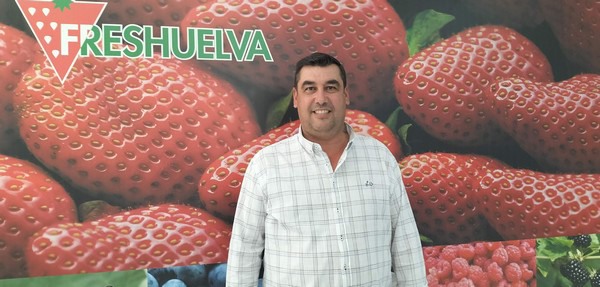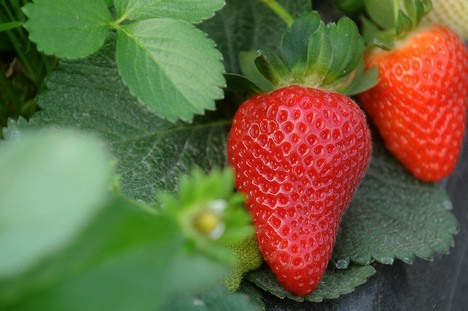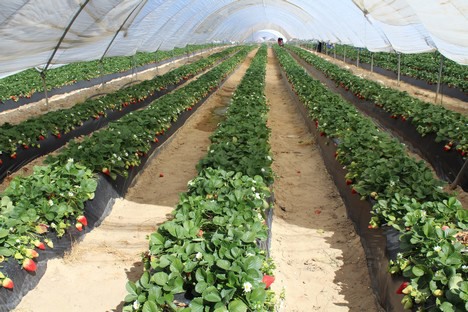In the first part of the strawberry campaign in Huelva, producers had to deal with various factors that, as announced two weeks ago by the Association of Producers and Exporters of Strawberries from Huelva (Freshuelva), resulted in the production being up to 30% lower than at the same time last season. Currently, the decline stands at around 15%.

"It is still too early to take stock of the economic consequences of this decline in the production that we have been dealing with since the first months. Our campaign will still last for a few more weeks. We hope to be able to extend it until May, with a much better climate, like the one we have now, which will also allow us to obtain better quality fruit. May will be a very important month to recover part of the kilos lost in the production and retail."
According to Francisco Gómez, president of Freshuelva, the decrease in the production "has been quite a widespread issue, since the weather conditions have affected the entire Mediterranean basin, although this has not caused shortages in the markets."
"Retailers must also be understanding in the face of specific situations that cannot be predicted. We are working very hard to build customer loyalty, and to tackle any adverse situation that may arise, such as, for example, this drop in the production that we have been experiencing since the beginning of the season."

It is worth recalling that during the strawberry planting phase, 20% of the seedlings had to be replanted, which caused a delay in the entry into production of that fifth of the strawberries planted in the province. These were generally early varieties with very well-defined production cycles.
"The main cause of seedling mortality during the planting phase was the excessive heat. The regulation on the use of phytosanitary products worries us a lot, but we have not been affected by that yet. At Freshuelva, we are working side by side with the central Government and the Government of Andalusia to adapt to the new situation and become ready for the future, looking for the most sustainable alternatives within the new legal framework, aiming to protect the health of our crops, which is what we all want."
"The province of Huelva has water, what it needs is the means to store it"
For the province of Huelva, berries, with strawberries at the forefront, are indisputably important. The latest data shared by Extenda revealed that Andalusia had broken its record for berry exports in the first nine months of 2022, with sales worth 1,300 million Euro; the highest figure on record for this period and a 3.2% growth over the same period last year. Strawberry exports in particular were worth a total of 562 million Euro.

Despite this, the administration is still failing to offer this strategic sector (not only in Huelva, but throughout Andalusia) the necessary infrastructure to guarantee access to a resource as indispensable as water. "This, without a doubt, is the issue we are most concerned about in Huelva, and I believe also in Spain."
"This drought situation is not new, but it is affecting us, and our crops could be severely hit by it. This season, we have already suffered a 25% cut in the supply of water for irrigation, and the forecasts are not very good, because it is still not raining. It hurts to see how, when it rains, a lot of water is wasted, because Huelva doesn't have the necessary infrastructure to make the best use of it. And we are talking about infrastructures and measures that we have been promised, which have been approved and which are mostly not being implemented."
"If this province had the hydric infrastructures it deserves, our reality would be very different, since the province of Huelva has water; what it needs is the means to store it."
For more information:
Freshuelva
C/ Presidente Adolfo Suárez, 1
21001 Huelva, Spain
T: +34 959 248 222
freshuelva.es
